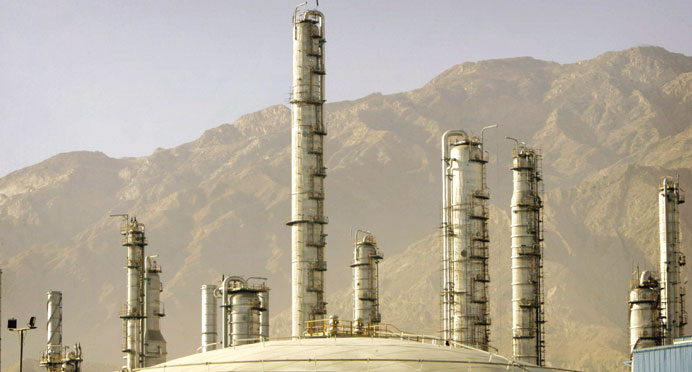A view of a petrochemical complex in Assaluyeh seaport on Iran’s Gulf coast.
Reuters/London
Iran’s oil exports have risen further in February for a fourth consecutive month, according to sources who track tanker movements, adding to signs that the easing of sanctions pressure on Tehran is helping its oil exports to recover.
The increase in shipments is around 100,000 bpd, according to one tracker company, which would take Iranian exports to at least 1.30mn bpd for February.
The rise in shipments follows an interim deal agreed in November with world powers in return for curbs on Iran’s nuclear programme. This, say industry sources, has improved sentiment and reduced uncertainty for buyers.
A second tracking source familiar with Iran’s shipments said extra cargoes had headed to Syria and South Korea in February. Two cargoes were unloaded in Indonesian waters - a location sometimes used by Iran for ship-to-ship transfers.
“While February is a shorter calendar month, we have seen more cargoes moving to Syria,” the second tracking source said.
Sales to Iran’s top two buyers, China and India, have remained at firm levels.
A sustained increase in exports from Iran, as well as a recovery in Libyan exports, could weigh on oil prices in 2014. So far, though, the rise in Iranian supplies is modest and output is still much reduced from the pre-sanctions rate.
In January, the European Union and the US eased some sanctions including restrictions on ship insurance, which became available for the first time since mid-2012 following the deal reached in Geneva. Vessels transporting Iranian crude have previously been left with limited alternatives, mostly set up by importers.
Mark Wallace, chief executive of US pressure group United Against Nuclear Iran, which seeks tougher sanctions, said Iran’s economy was already benefiting from the sanctions relief.
“The Obama administration has stated that sanctions relief would only amount to $6bn to $7bn, however the increase in oil sales alone has already been worth over $4bn in new revenue for the regime,” said Wallace, a former US ambassador to the UN.

